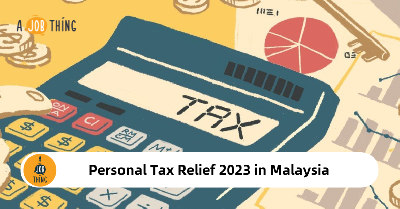
Tips To Balance Your HR Workload By HR Leaders
Create Job Description Using AI
Write appealing job descriptions for any job opening to attract the most qualifield and suitable candidates. FOR FREE.
try now
As the year comes to a close, HR leaders feel extremely exhausted. It's easy to overlook that People teams, too, get overwhelmed and overworked, from making preparations for open enrollment and surviving budget season to taking care of everyone else's burnout.
Various strategies may assist you in reducing your pressure during this time of year, ranging from setting boundaries and discovering balance to assigning routine tasks.
Make a plan for disaster relief
"Worker shortages, increased workload, and a global pandemic are just a few of the factors that have significantly affected the workforce over the last two years, putting a strain on employee well-being."
If you or your team is showing signs of burnout, make a plan to soothe each other. What are the most pressing tasks must be delegated to another division member? Which are much less urgent and can wait a little longer?
After completing this, give your team members some well-deserved time off, and then decompress! If you don't, the organisation and your well-being will suffer."
- Pivot Workforce's Steven Brown
Set boundaries and strike a balance
"All HR professionals should maintain a sense of rebalancing and limitations in their work for and alongside their organisations. For example, unless prior agreements have been made, I have a hard deadline every day at 6:00 p.m.
My phone goes silent, and I don't check emails. Also, and it was the most difficult part, I removed emails from the frequent email app. To access email messages on my phone, I must launch the Outlook App. This allows me to be more deliberate with my emails. They do not manage me, and I do not manage them."
- HR Resolutions, Karen Young
Prioritize yourself
"Putting yourself first is simpler said than done for many of us, and for some, it may feel impossible. Prioritizing your self-care, on the other hand, is critical to avoiding burnout.
And everyone's definition of self-care is different. I start each morning with exercise and take a quick walk if I feel overwhelmed.
Self-care, combined with a routine established before the disease outbreak, helped me avoid burnout during a year when burnout almost seemed unavoidable.
Remember, self-care is not a luxury. You cannot care for others if you are not caring for yourself. So take a couple of minutes longer—to prioritise yourself."
- The Granite Group's Tracie Sponenberg
Recognize exhaustion and leave work at work
"Burnout in the workplace can often be avoided by simply being honest with oneself. Have you been experiencing stress recently? Do you ever feel "on edge" when speaking with coworkers?
Recognising when you're beginning to feel burnt out at work before it happens allows you to take control of the situation.
Furthermore, HR leaders must establish the same boundary lines that all employees should. That is, leave the office where it should be, at work. Your time after work should be spent on your personal life, not work.
If you think about your job after hours, you're probably overworking yourself, which can lead to burnout. Make a mental on/off switch activated every evening you clock out, making you feel at home while remaining productive at work."
- WorkBoard's Himanshu Agarwal
Make use of technology to increase productivity
"One-third of the average adult's workday is spent reading and responding to emails. That figure is higher for HR professionals.HR software, for example, can assist leaders in balancing their workload and avoiding burnout.
To manage incoming applicants, you can use effective hiring operating systems such as Boostpoint. Burnout is less likely when using HR technology tools."
- Revela Health's Evan Zhao
Pay attention to your advice
"As an HR Manager, you are not only in control of procedures, systems, and tools but also a source of trust. Real human beings at all levels will approach you to confide in you, seek advice, and hope you can assist them in their individual endeavours.
This can be mentally and emotionally taxing, and it is not always easy to "switch off" when you leave the workplace. Here are some ideas and approaches that I found useful when dealing with all these situations:
-
You must coach yourself. You most likely have the ability to coach others. Try having a coaching dialogue with yourself to gain a fresh perspective.
-
Consider comedy. Go watch your favourite funny film, series, or streaming service. You will feel better once you start laughing, and your brain discharges all those tasty endorphins.
-
Get some perspective. Remember, no regardless of how significant your role is, you are not a doctor. Nobody will die if you can't solve a problem."
- Soaring Fox's Reinhard Guggenberger

For more HR-related content, visit our HR Library!





